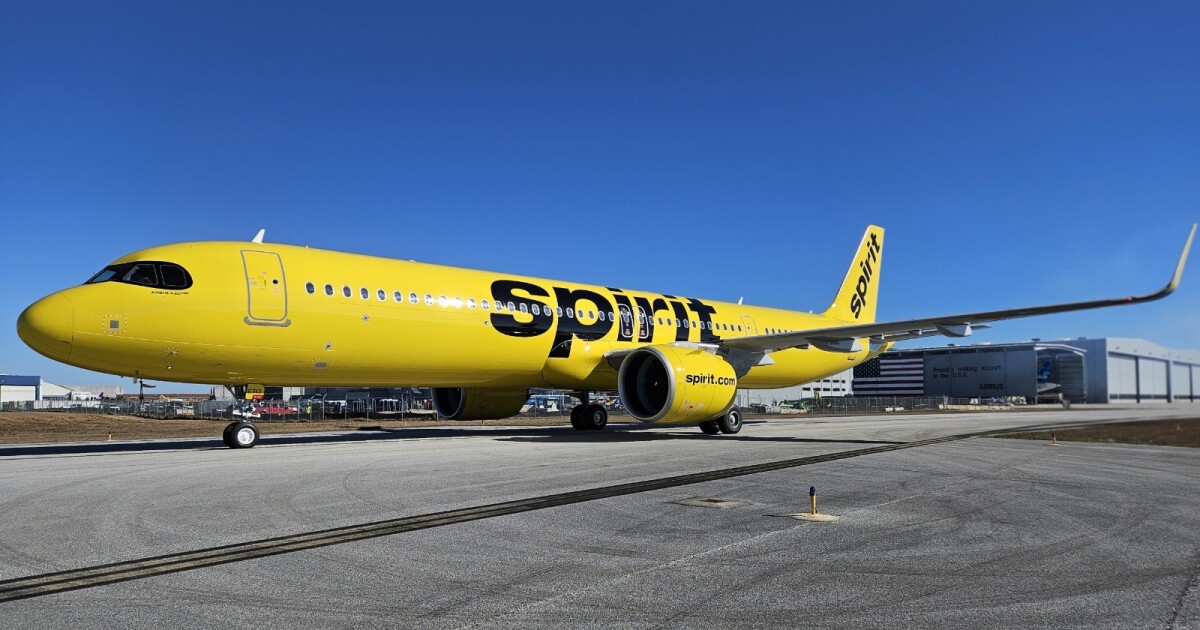Troubled ultra-low cost airline Spirit Airlines has two more months to refinance about $1 billion of its debt.
The carrier was facing a Monday deadline to renegotiate loans it took out during the first months of COVID-19. It was able to extend its deadline until Dec. 23.
It announced the extension late Friday in a filing with the Securities and Exchange Commission.
Spirit stock is down 90% so far this year as investors increasingly worry the carrier may declare bankruptcy. The total stock value of the company is $161 million as of the close of trading Friday. It owes more than $3 billion in debt.
As part of its latest financial disclosure, Spirit said it tapped a credit line, borrowing $300 million – the entire amount available to it. This money is due at the end of September 2026 as long as it is able to refinance other loans. If not, this newest round of borrowing will come due next summer.
Spirit has a lot riding on its negotiations with holders of its loyalty bonds. The loyalty bonds are IOUs backed by the company’s frequent flier program, intellectual property and brand. It must come to terms in order for it to continue working into next year with the company that processes passenger credit card payments. As part of its on-going talks, Spirit and its credit card processor agreed to extend their deal through at least March. Previously, it could have ended as soon as the end of this year.
READ MORE: How pandemic borrowing against its brand is costing South Florida’s Spirit Airlines now
Spirit has not reported a quarterly operating profit since 2019. The airline industry was hit by a virtual halt in traveling during the pandemic before vaccines became widely available. Spirit’s business model focusing on budget conscious passengers who pay for their own travel has faced stiffening competition from more traditional airlines. The company spent two years trying to merge with other low-cost carriers.
First, it announced a merger with Frontier Airlines in early 2022. JetBlue made a competing offer, for which Spirit worried would be difficult to get regulatory okay. JetBlue appealed to Spirit shareholders, a majority of whom voted for the higher-priced JetBlue offer.
After the vote Spirit CEO Ted Christie said the merger with JetBlue “will create the most compelling national low-fare challenger to the dominant U.S. carriers.”
However, the deal ran into opposition. The Justice Department sued to block the merger over concerns the combined airline would lead to less competition and higher airfares. A federal judge agreed and ruled the merger violated antitrust law.
After saying they would appeal that decision, Spirit and JetBlue dropped their effort in March. Christie dismissed concerns about Spirit’s viability. “We remain confident in our future as a successful independent airline,” he said at the time.
Spirit has about 3,900 employees in South Florida. The company opened its new $250 million headquarters and training center in Dania Beach in April.

